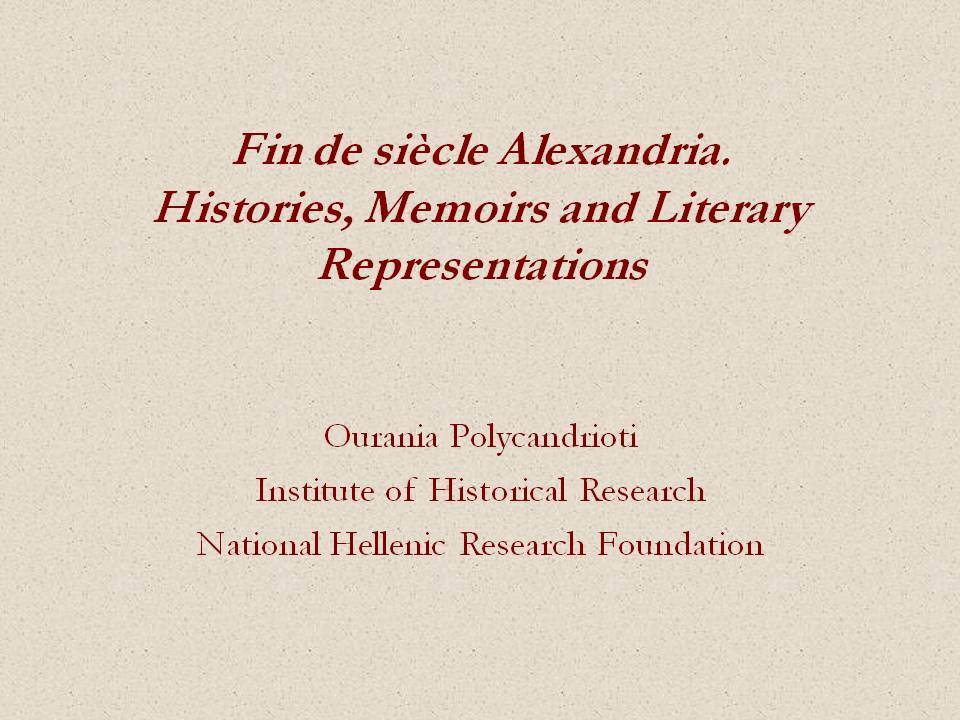
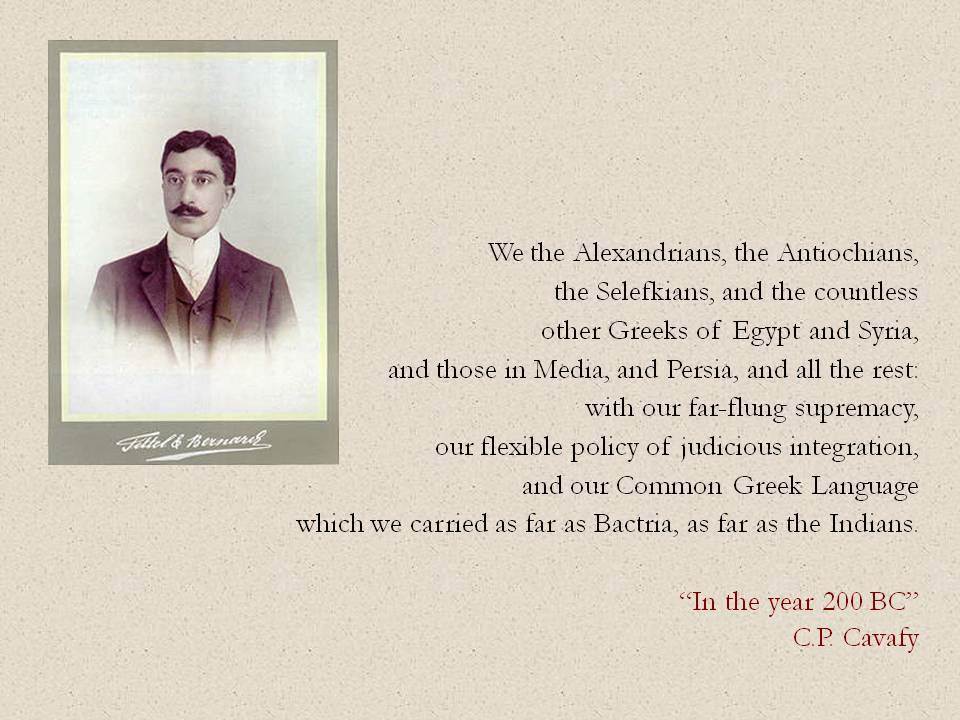
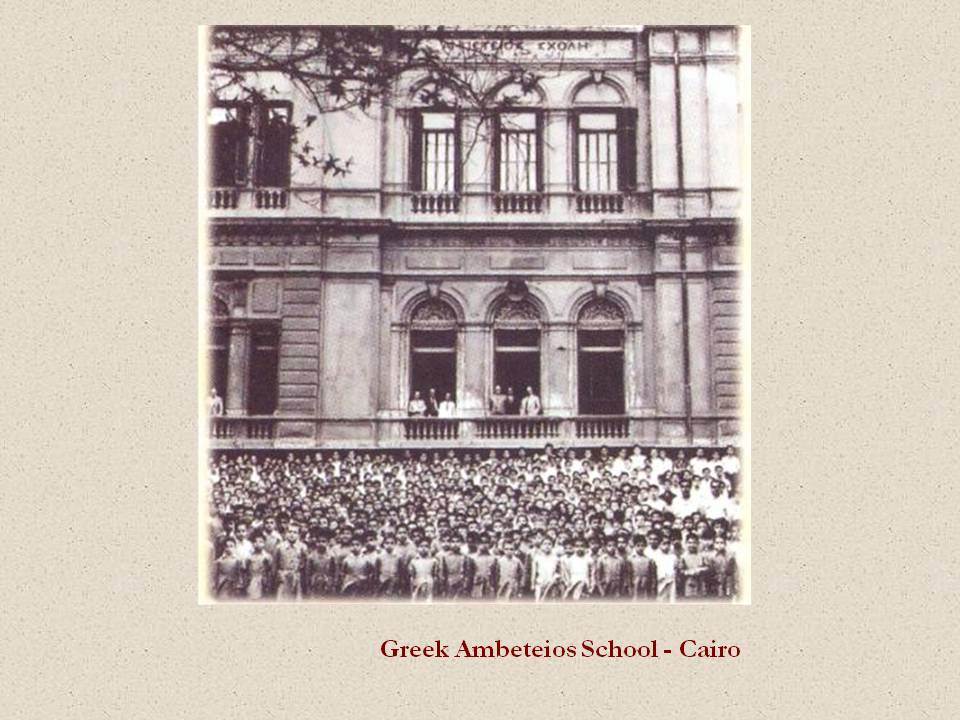
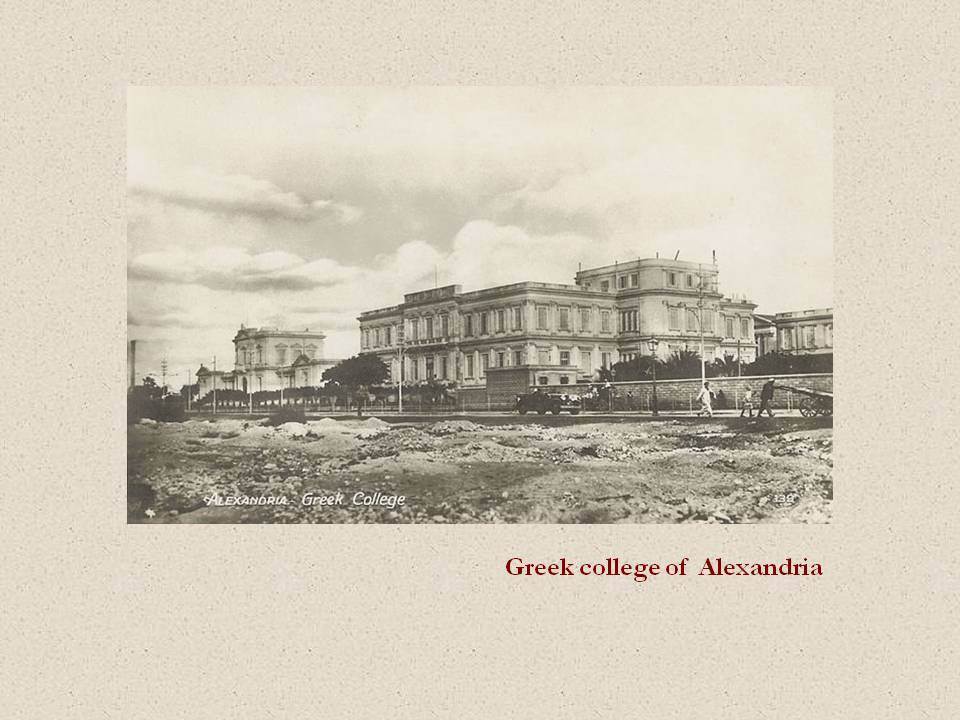
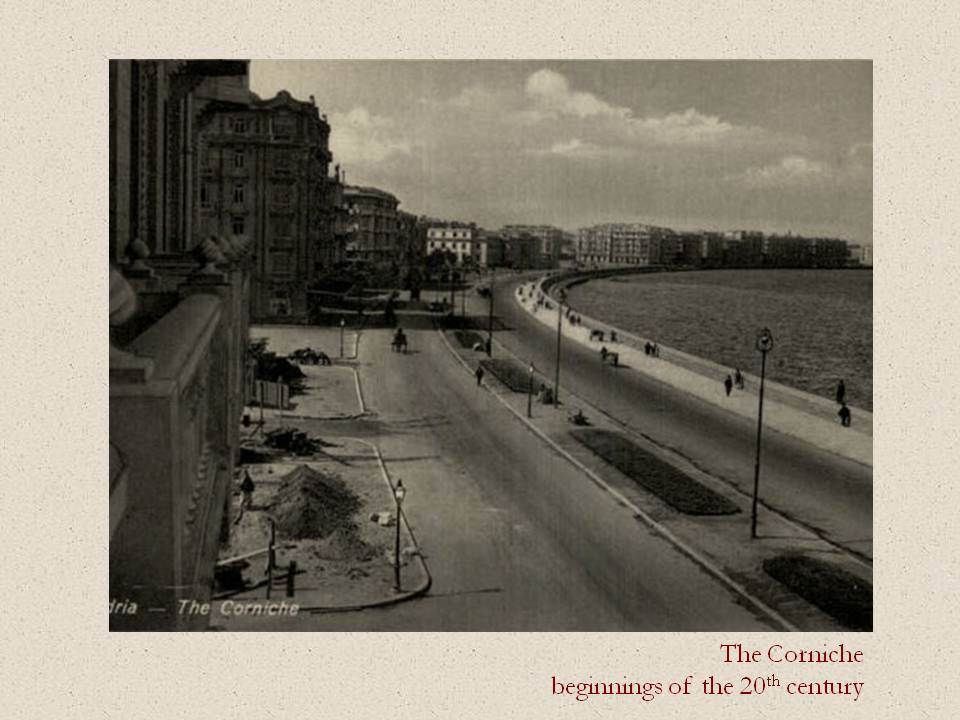
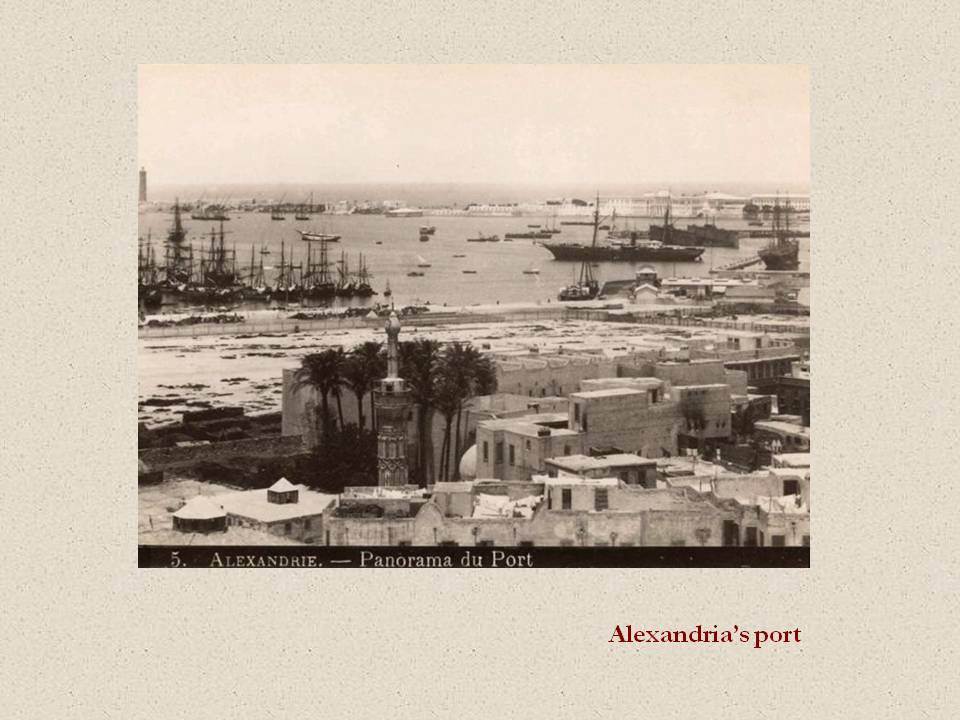
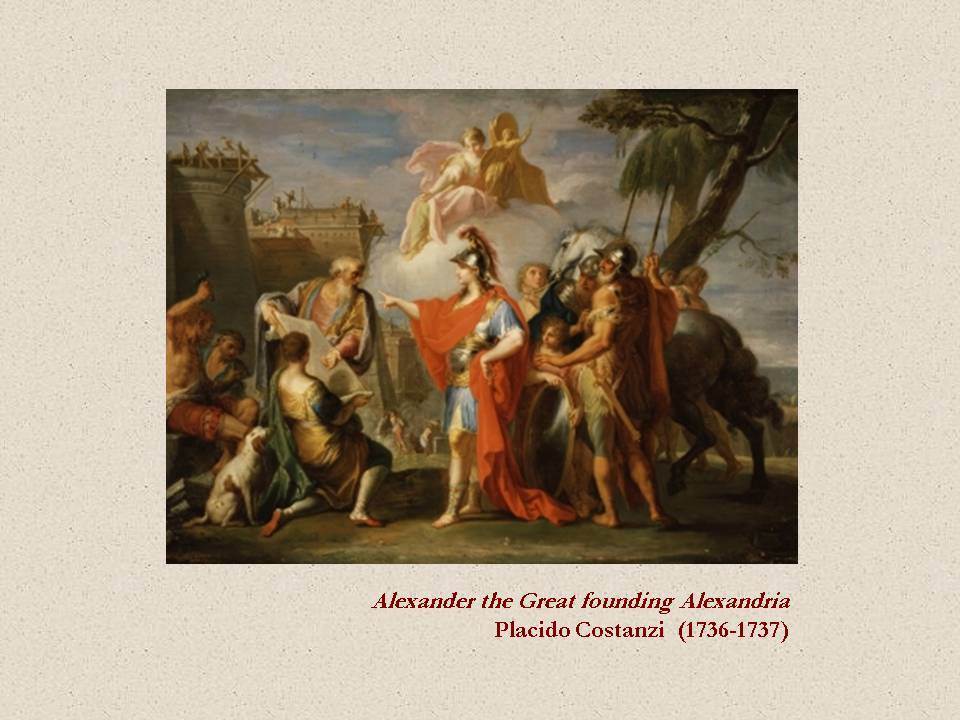
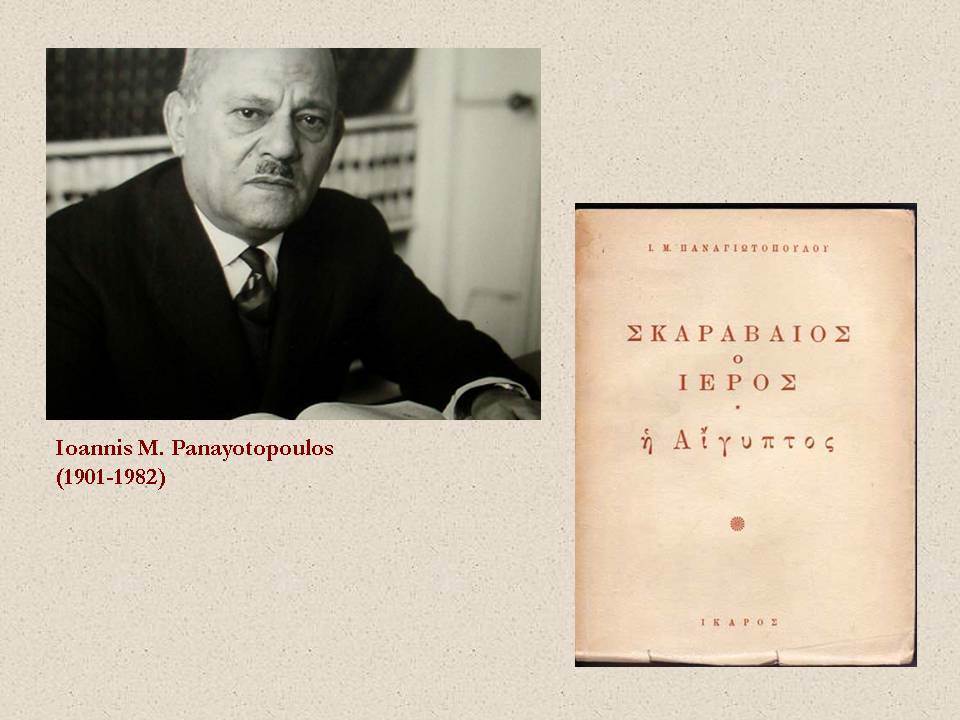
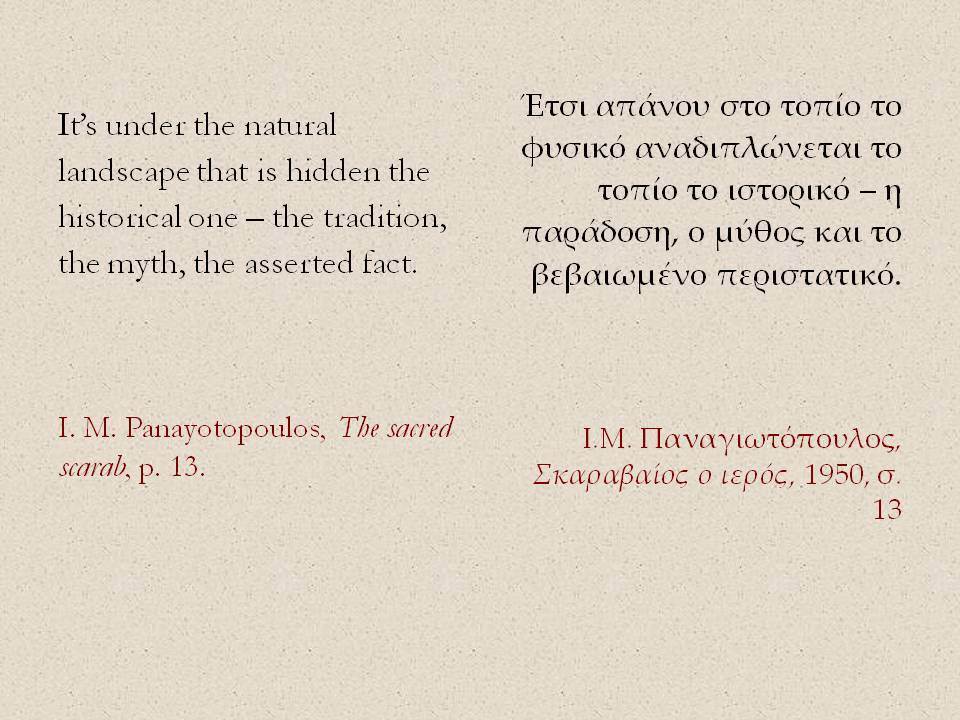
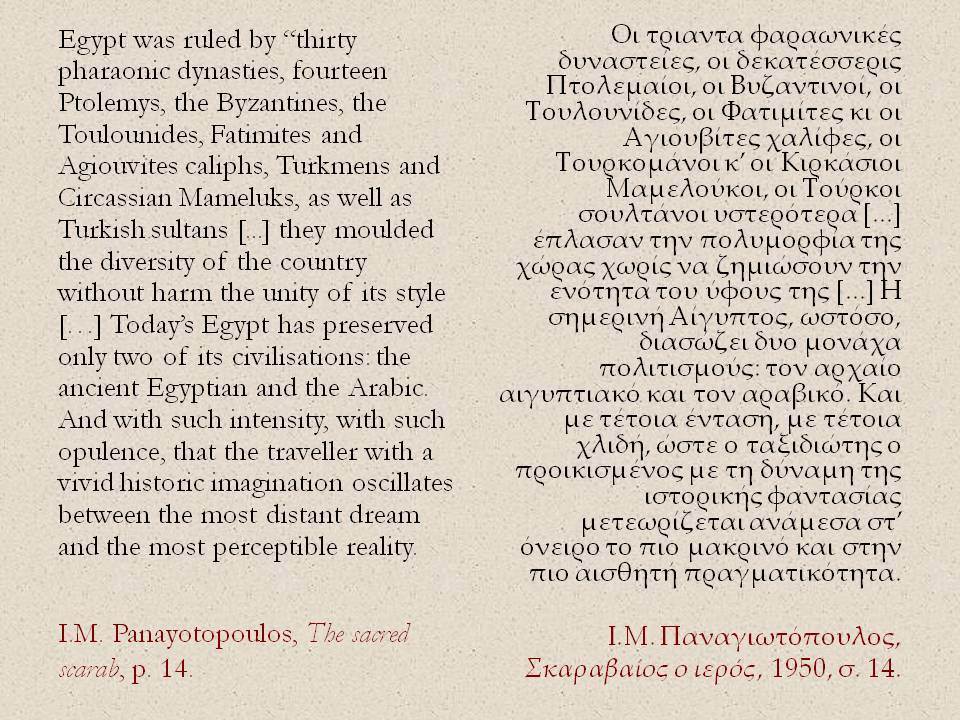
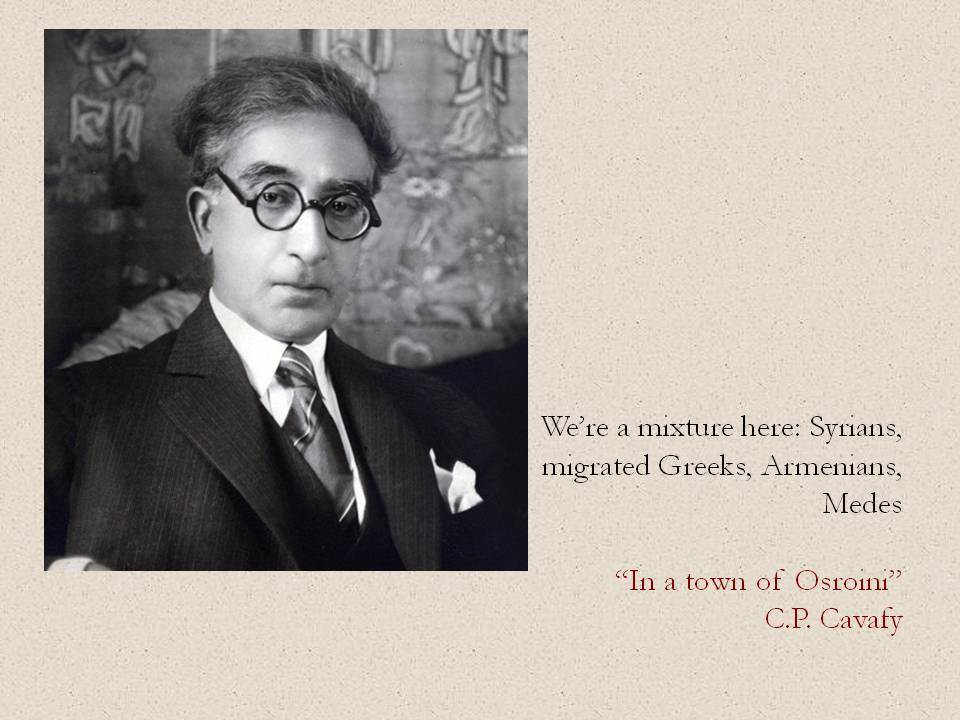
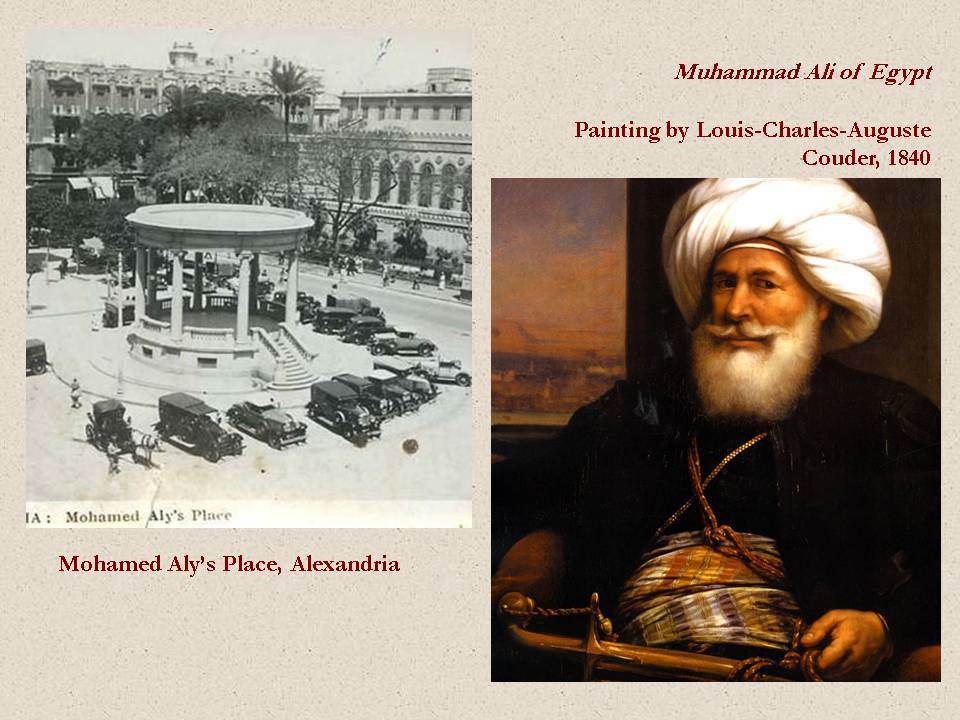
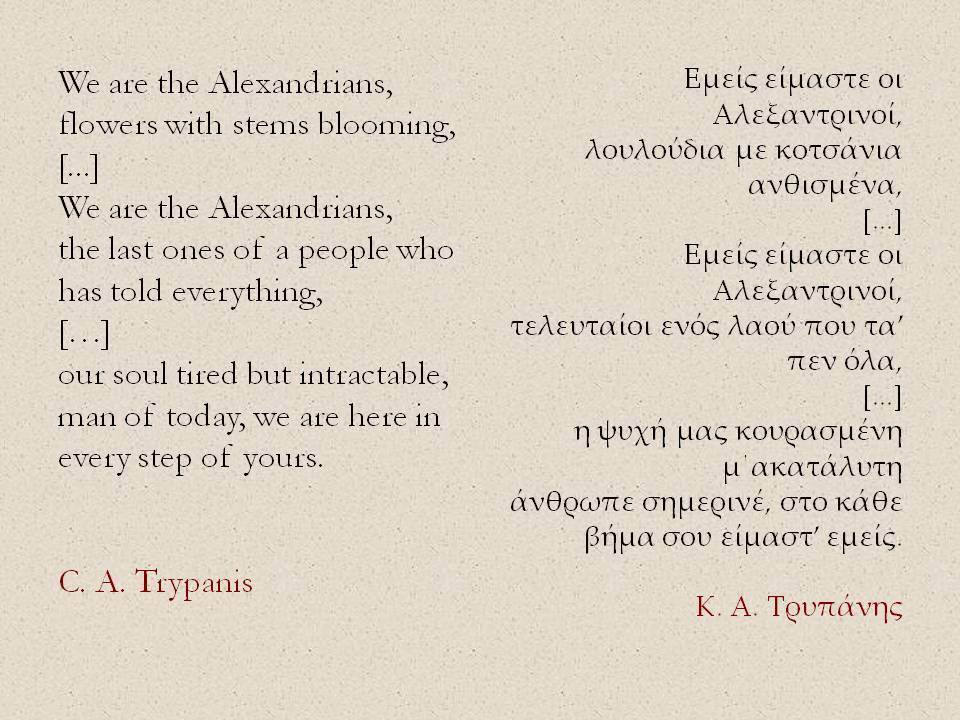
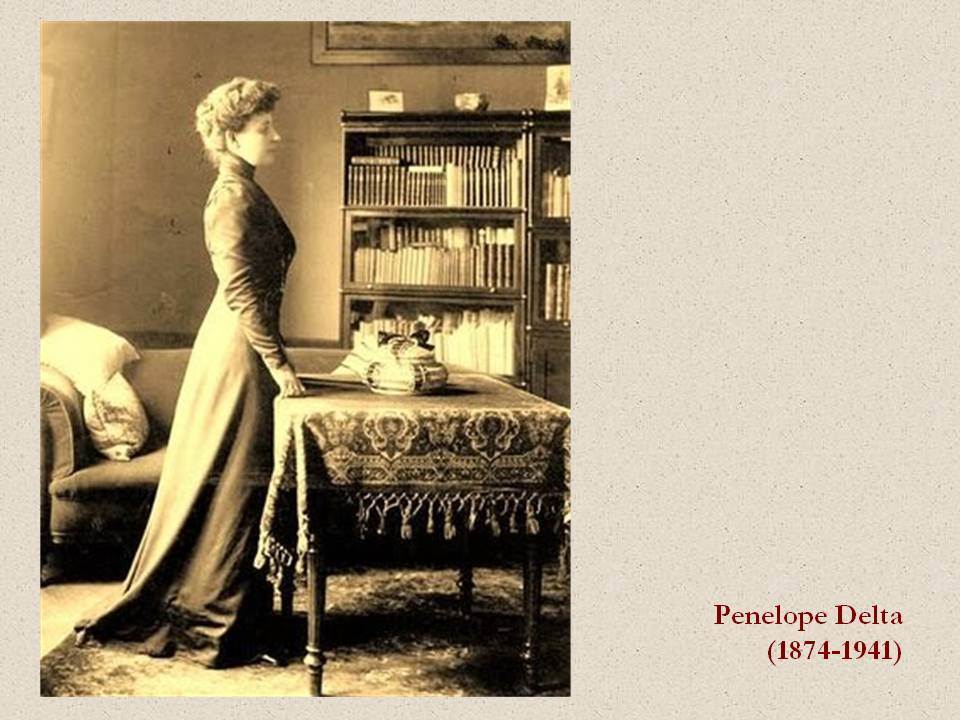
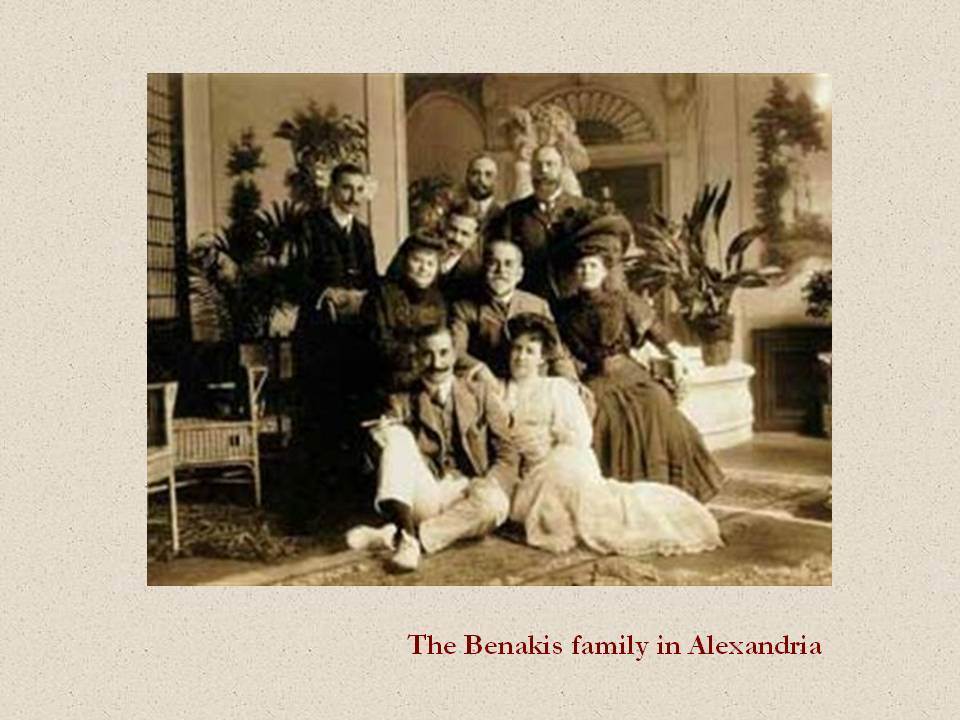
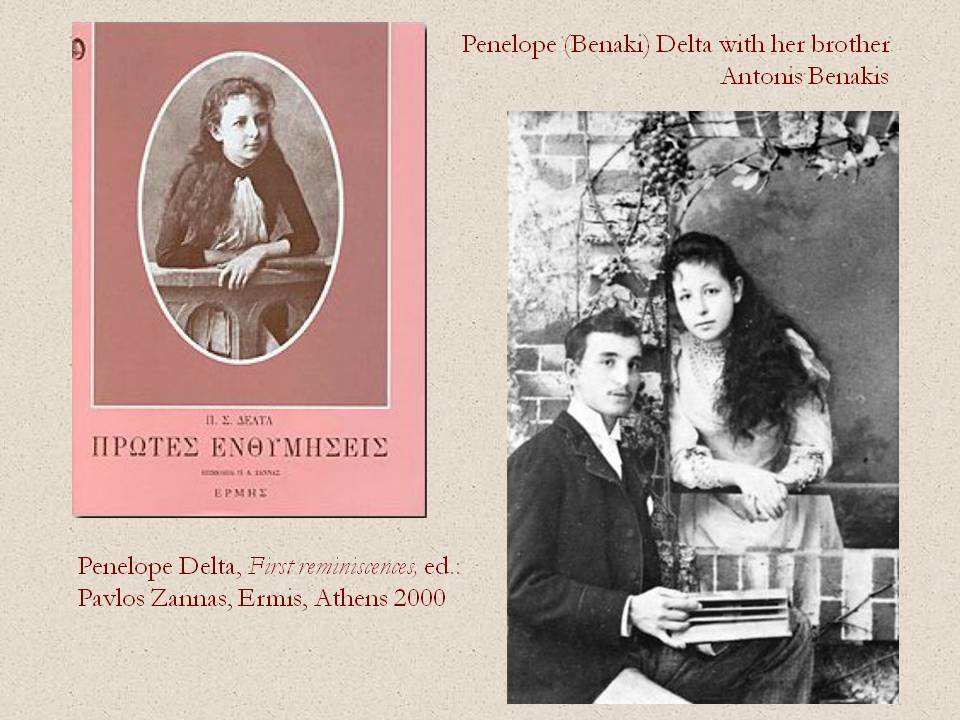
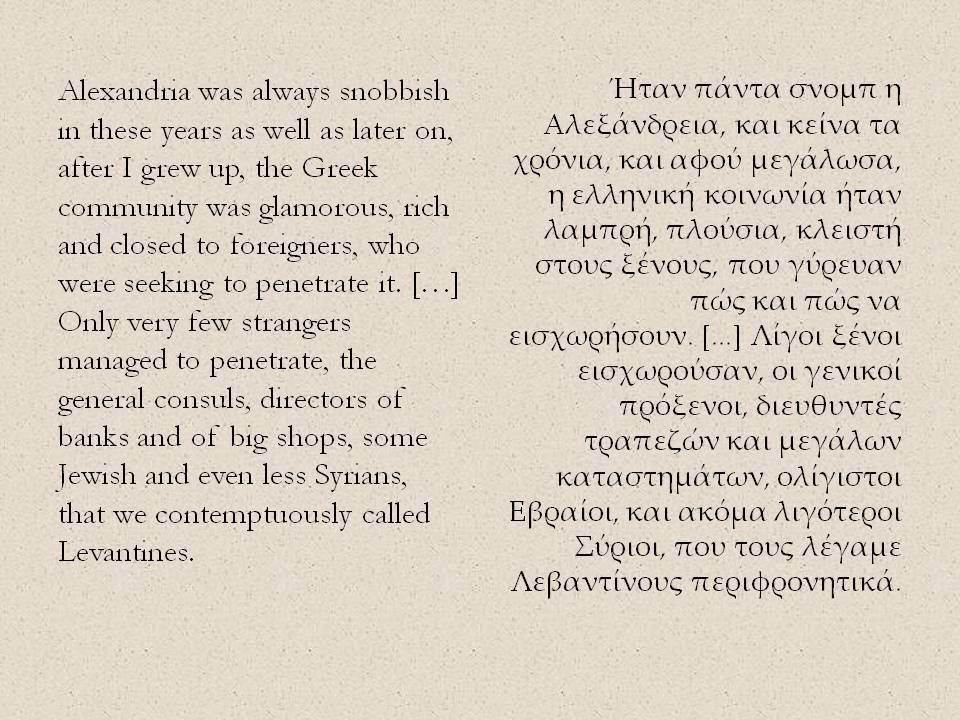
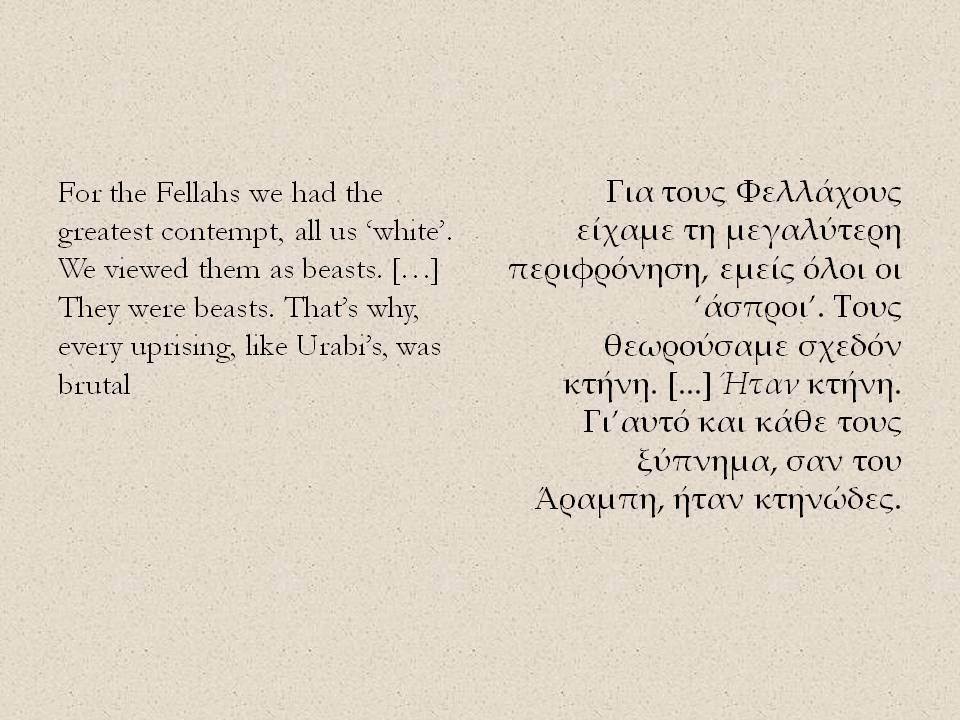
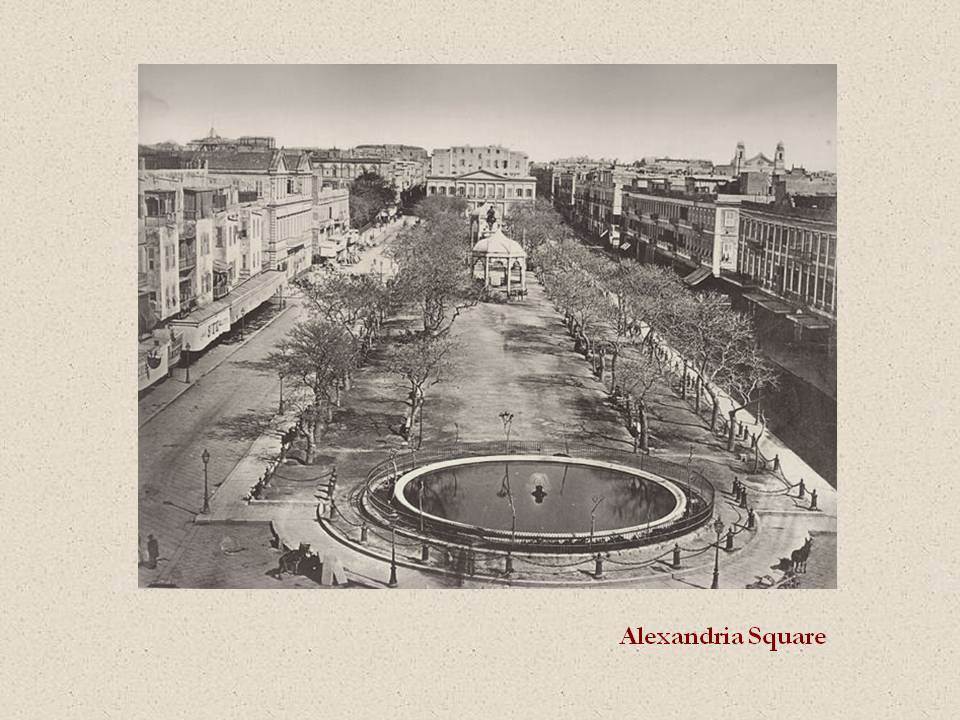
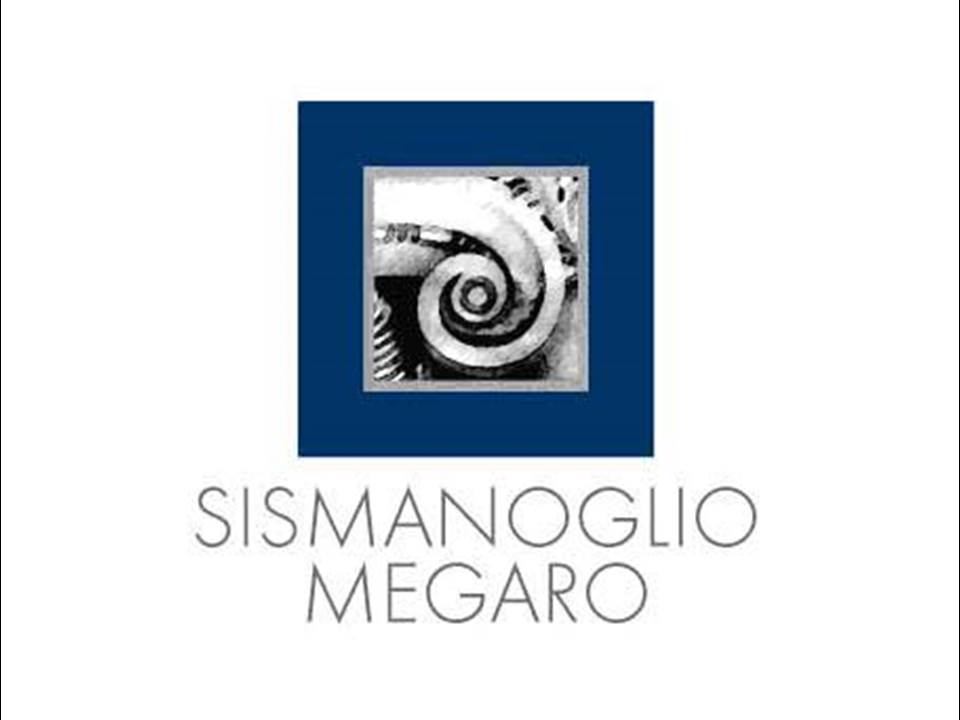
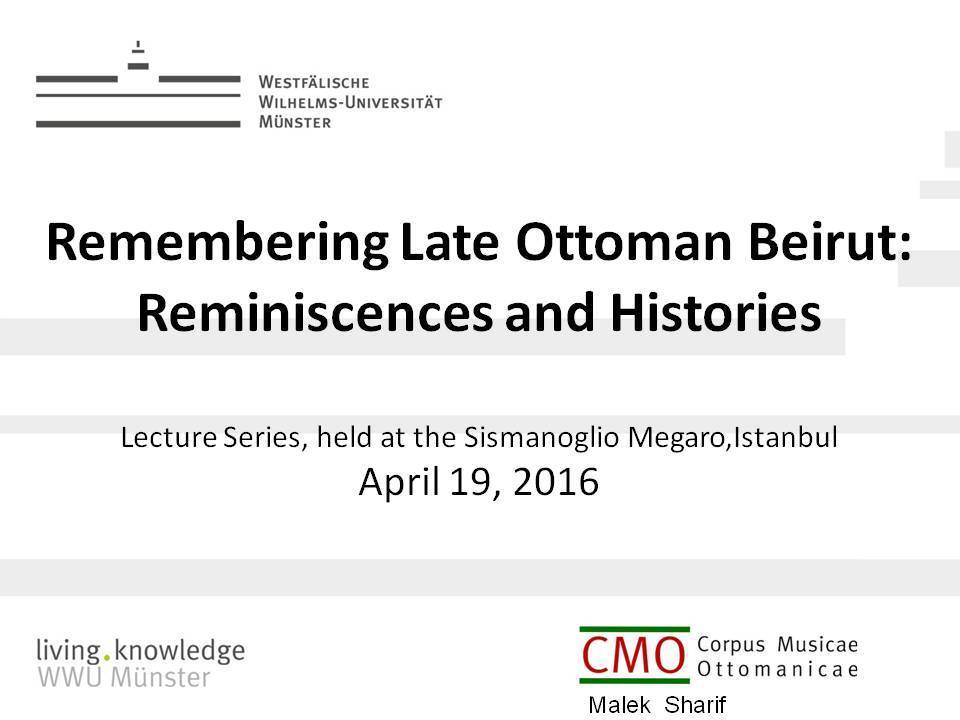
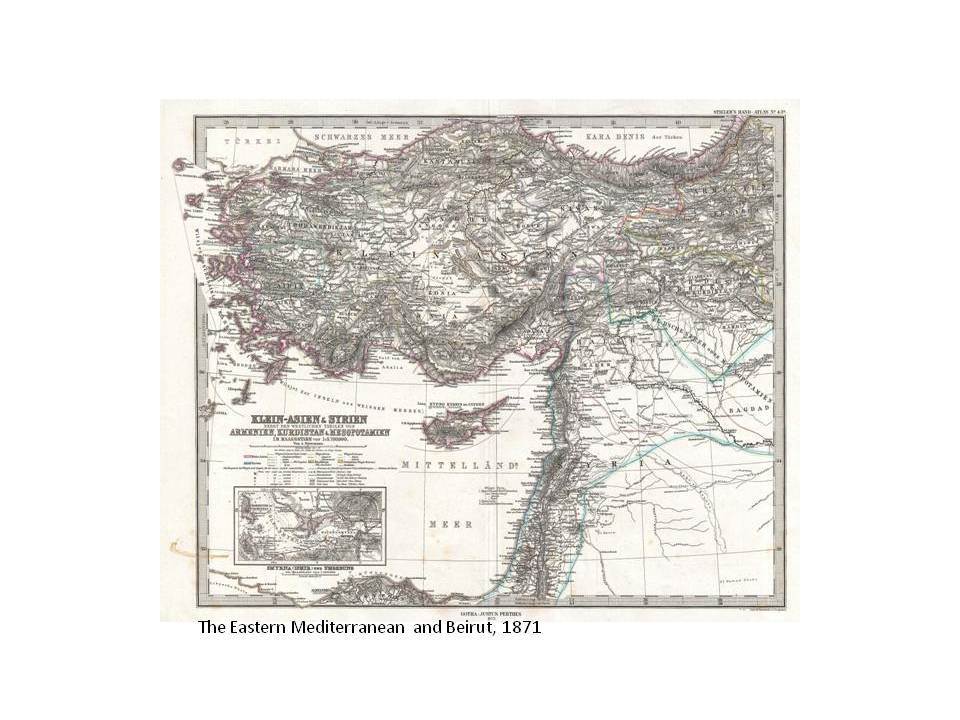
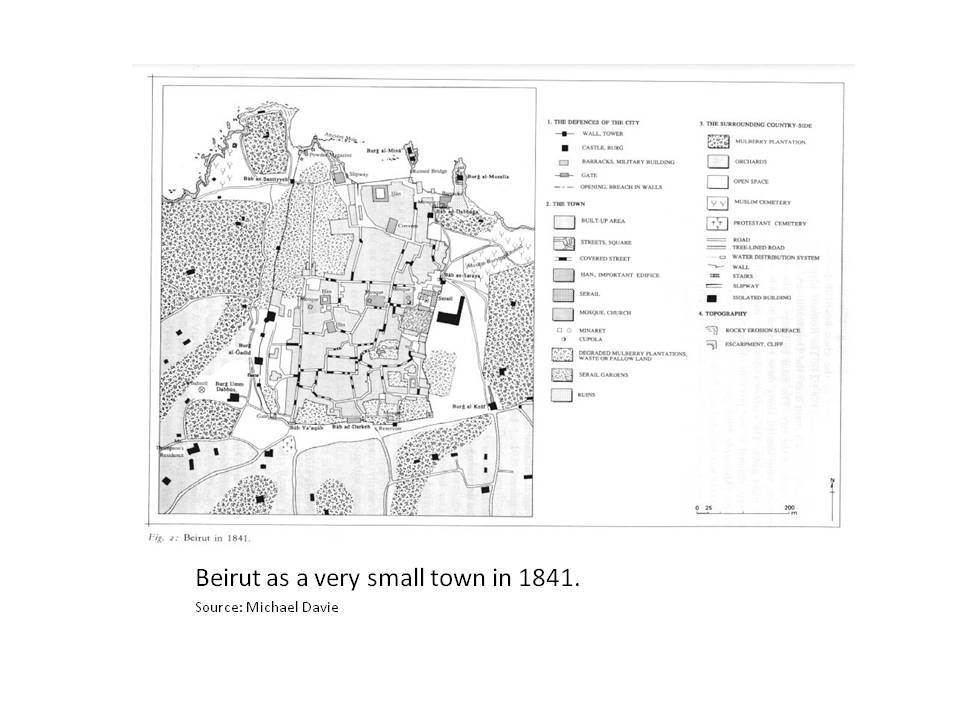
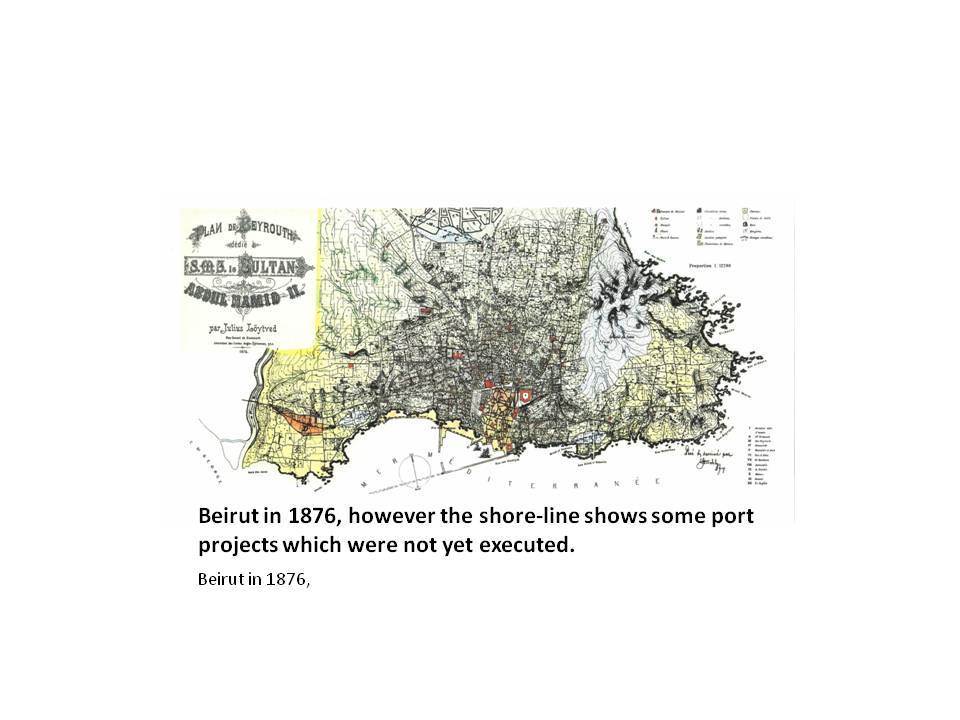
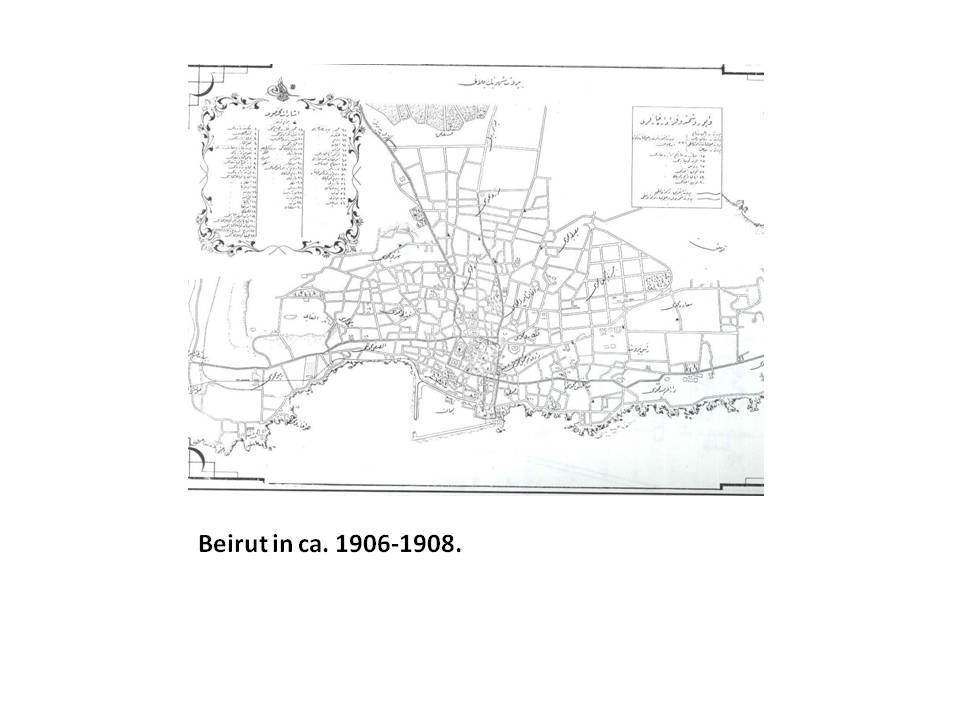

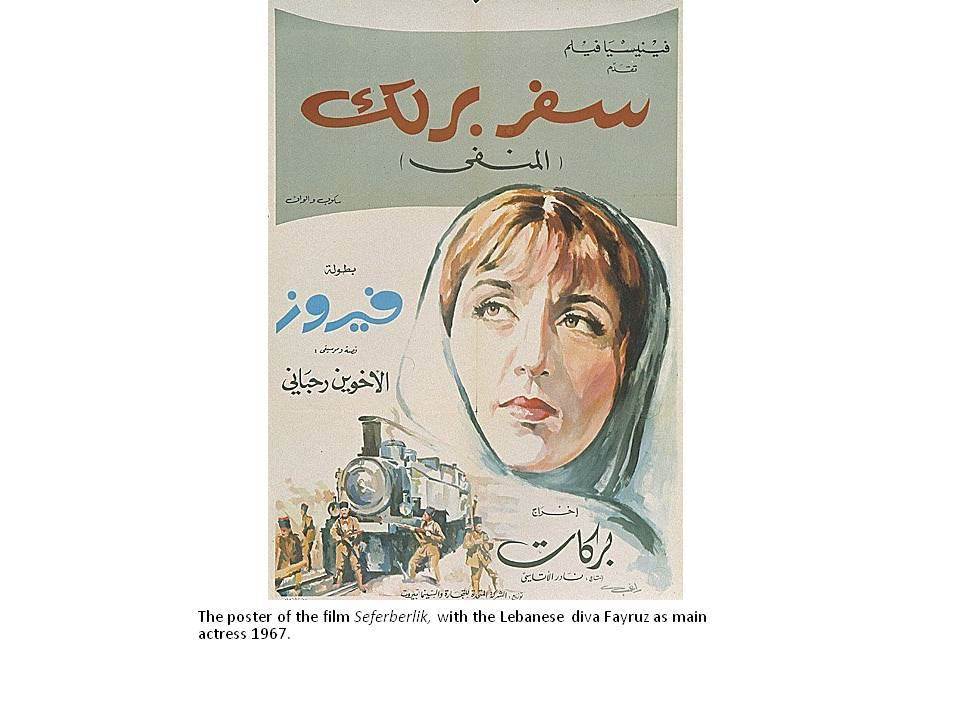
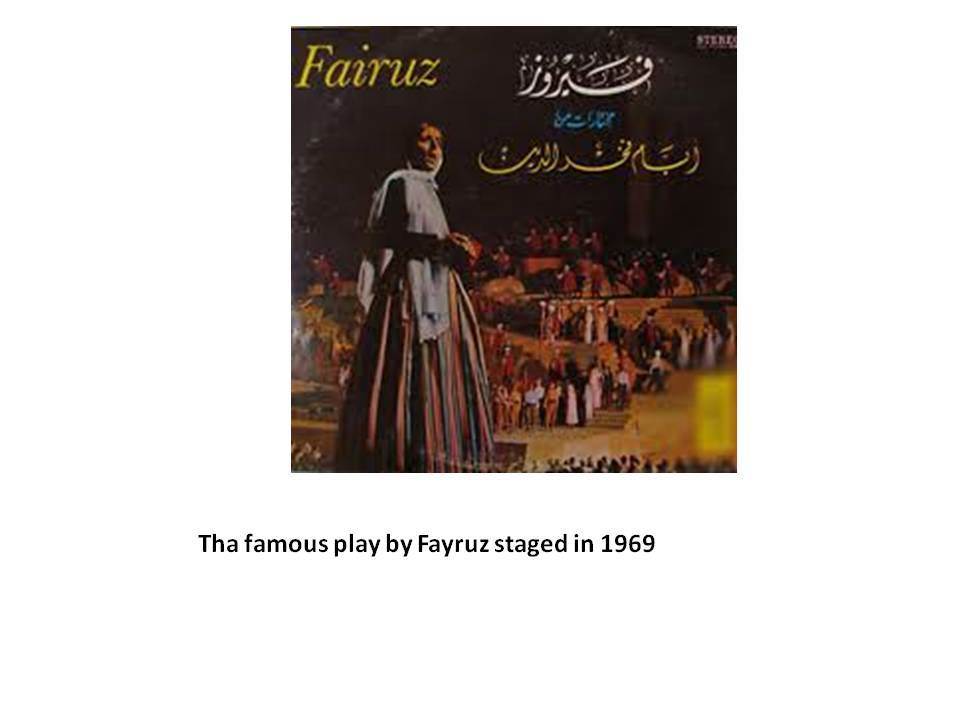
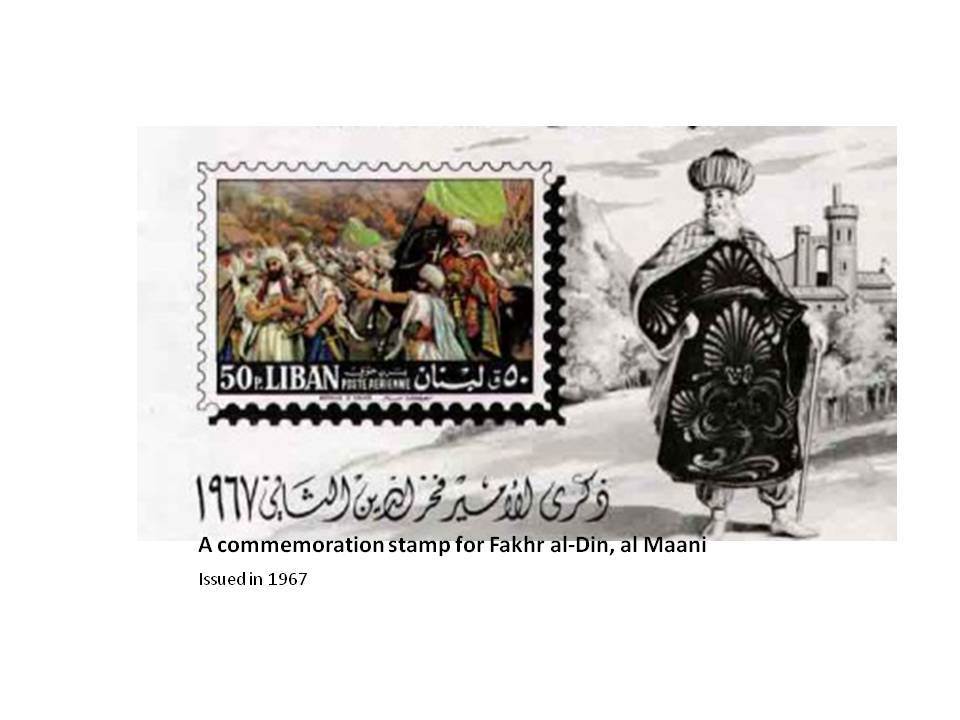

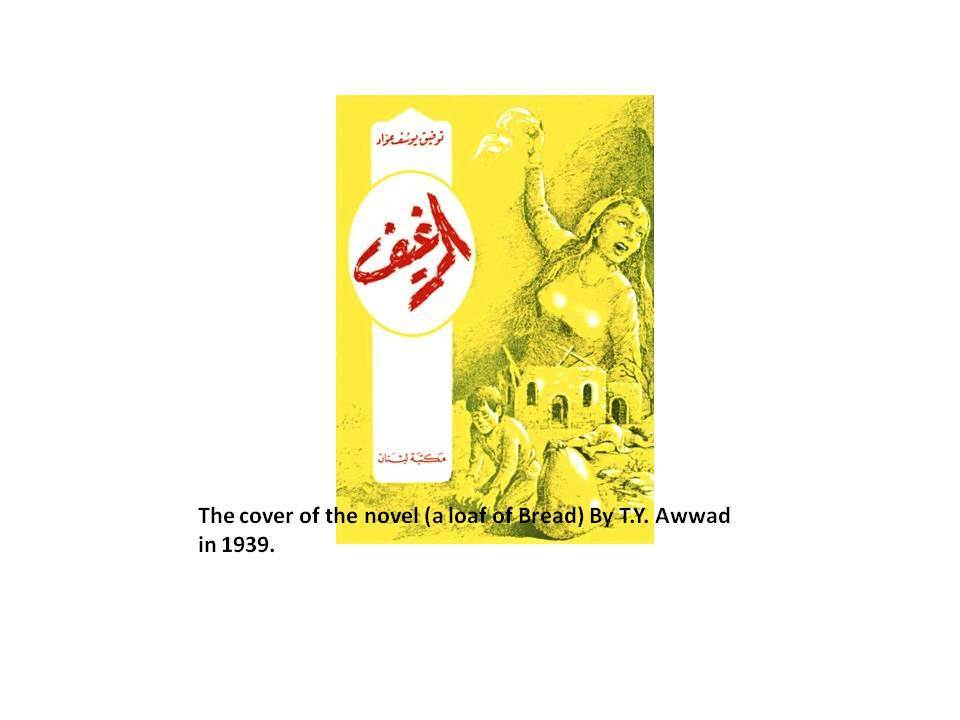

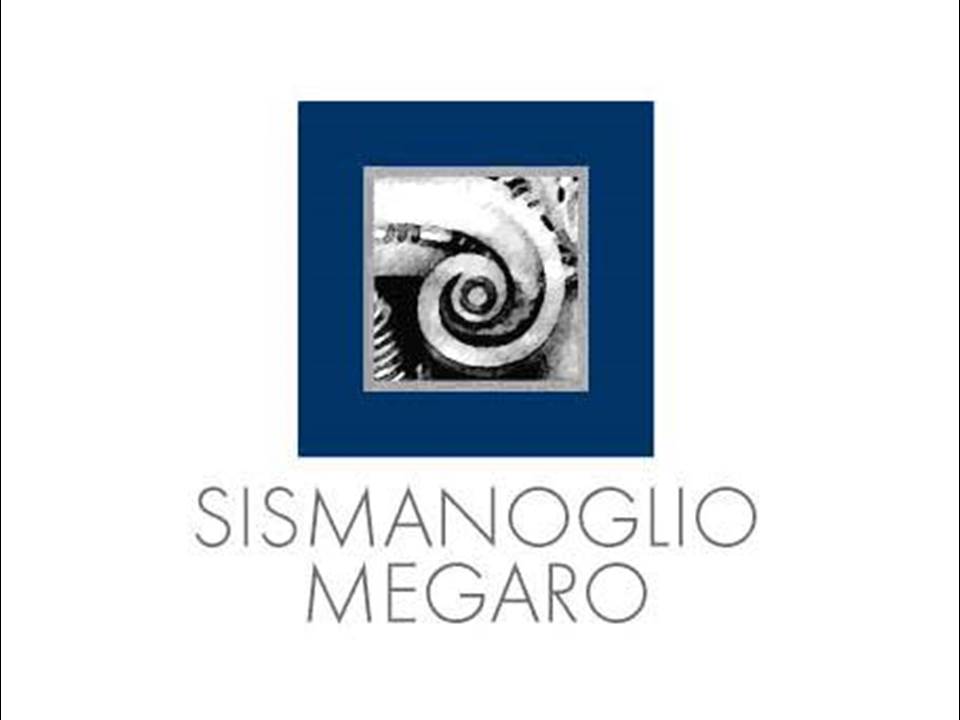
Polycandrioti Ourania
Sharif (Münster) Malek
Γλώσσα
Türkçe
Ημερομηνία
19/04/2016
Διάρκεια
80:12
Εκδήλωση
Sismanoglio Megaro konuşmalar
Χώρος
Sismanoglio Megaro, Istanbul
Διοργάνωση
Γενικό Προξενείο της Ελλάδας στην Κωνσταντινούπολη
Scroll down for English
Yunanistan Ulusal Araştırma Enstitüsü Osmanlı Araştırmaları Programı ve Orient-Institut Istanbul işbirliğiyle Sismanoglio Megaro binasında “Doğu Akdeniz’de Osmanlı Geçmişini Hatırlamak” başlıklı bir konuşmalar dizisi düzenliyor. Ekim 2015 – Mayıs 2016 eğitim öğretim döneminde Sismanoglio Megaro’da Evangelia Balta (Program of Ottoman Studies, National Hellenic Research Foundation, Athens) ile Richard Wittmann’ın (Orient-Institut, Istanbul) birlikte düzenleyeceği bu konferans dizisi, Doğu Akdeniz bölgesindeki günümüz sakinlerinin ortak geçmişlerinin çeşitli yönlerine ışık tutmayı amaçlıyor. Bu konferans dizisi Orient-Institut Istanbul ile Program of Ottoman Studies at the National Hellenic Research Foundation’ın araştırma alanlarıyla örtüşmektedir. Osmanlı İmparatorluğu’nun yıkılışının sonuçlarıyla etkilerinin halen hissedildiği günümüzde, bu konferanslar hâkim tarihyazımının standart kurallarını ve sınırlarını zorlayan çok sayıda kaynağa odaklanmaktadır. Kişisel ve resmi yazılı kaynaklarının yanı sıra görsel ve sanatsal ifade biçimlerini de araştırma sürecine dahil eden bu dizi, bu geniş –ve yüzyıllar boyunca bir bütün olarak kalmış– coğrafi alanda yirminci yüzyılın ilk otuz yılındaki derin siyasi değişikliklere eşlik eden kopuşlara ve sürekliliklere bir ışık tutma denemesi olacaktır. Devamını oku: http://goo.gl/JDzkt4
Dr. Ourania Polycandrioti (Atina) - Geç Osmanlı dönemi İskenderiye:
Hikâyeler, Hatıralar ve Edebî Tasvirler
ÖZET
Osmanlı geçmişini nasıl hatırlayacağımız sorusu, kendi antik ve modern tarihi kadar çok yönlü ve kozmopolitan burjuva toplumunun etkinlikleri ve yaşam tarzıyla da göze çarpan mitsel bir şehir olan İskenderiye’ye uyarlandığında özel bir dikkat gerektirir. O halde ortak Osmanlı geçmişi, romantik bir oryantalizmin stereotip imgesi, çok kültürlü bir toplumun kozmopolitliği, Mısır kültürünün yükselişi ve modern dönem ulusallaşması arasında hangileri şehrin kurgusal ve kurgusal olmayan anlatılarıdır, hangileri oldukça simgesel imgeleridir? Edebi metinler, hatıratlar ve seyahatnamelerden yola çıkarak on dokuzuncu yüzyılın sonunda İskenderiye’nin algılanmasında Osmanlı geçmişinin ne denli etkili olduğunu kavramaya çalışacağız.
Dr. Malek Sharif (Münster) - Son Dönem Osmanlı Beyrut’unu Hatırlamak: Hatıralar ve Hikâyeler
ÖZET
Dr. Sharif bu konuşmasında geç dönem Osmanlı Beyrut’una ait hatıralar ve tarih yazımına dair genel bir bakış açısı sunacak ve bu kaynakların Lübnan’ın politik tarihinin özgün şekilde algılanmasında eksik bıraktıkları yanlarını açıklamaya çalışacak. Sharif, Osmanlı Beyrut’u edebiyatta çok sonraları ortaya çıkmışken tiyatro oyunlarının ve filmlerin genel olarak ve özelde Birinci Dünya Savaşı sırasında kolektif Lübnan belleğinin oluşumunda oynadıkları rolü tartışacak. Konuşma, kendi doğu Akdenizli bağlamında ele alınıp Osmanlı geçmişiyle irdelendiğinde Beyrut’un karmaşık tarihini, on dokuzuncu yüzyılda ortaya çıkmış ve şehrin yapısını belirleyen kimi fikir ve kurumları daha açık şekilde kavrayabileceğimizi göstermeyi amaçlamaktadır.
Introductory note (Dr. Richard Wittmann)
Following the last session on the memory of Ottoman Salonica tonight’s lectures will take us further East to two other wellknown cities of the Levant: Beirut and Alexandria. Like only few large cities in the Ottoman Empire these two residential centers on the shores of the Mediterranean carry a special charisma:“Beirut: The Jewel in the Crown of the Padishah”; “The Paris of the Middle East”, and “Alexandria: Queen of the Mediterranean”. These are some of the chapter headings, which the English historian Philip Mansel used in his 2010 landmark study “Levant. Splendour and Catastrophe on the Mediterranean” when writing about our two cities. As romantic and flowery as Mansel’s choice of chapter headings for his book may be, they strike a chord in the reader. After all, who --at least in the West-- wouldn’t pronounce the names of the two cities with a sense of awe and fascination. A fascination that has to do with the spectacular asthetic features, two cities of beautiful architecture, home to a diverse population of local residents, merchants and other foreign visitors, which are situated right on the shore of the Mediterranean, and coupled with a multi-faceted history, --both real and a product of our imaginations.The speakerstook us back to the late Ottoman past of Alexandria and Beirut and guide us in on how this period has been memorized in the successor states of Egypt and Lebanon.Our first speaker was Dr. Ourania Polycandrioti from National Hellenic Research Foundation (Athens)who spoke to us on“Fin de siècle Alexandria:Histories, Memoirs and Literary Representations”.Our second speaker tonight is a true Beiruti: Dr. Malek Sharif of the University of Münster in Westphalia. He has entitled his talk: “Remembering Late Ottoman Beirut: Reminiscences and Histories“.
Ourania Polycandrioti: Fin de siècle Alexandria - Histories, Memoirs and Literary Representations (Abstract)
The question of how we remember the Ottoman past acquires a rather special significancewhen applied in Alexandria, which is a mythical city, highly marked by its history, ancient and modern, as well as by the activities and the lifestyle of a multifaceted and cosmopolitan bourgeois society. Therefore, between the common Ottoman past, the stereotypical image of a romantic orientalism, the cosmopolitanism of a multicultural society, the rise of the Egyptian culture and the nationalization of the modern era, which would be the fictional and non fictional narrative representations and highly symbolic images of the city?Based on literary texts, as well as memoirs and travel narratives, we will try to explore these issues in order to discern the force of the Ottoman past in the perception ofAlexandria, at the end of the 19th century.
Dr. Malek Sharif (Münster): Remembering Late Ottoman Beirut - Reminiscences and Histories (Abstract)
In this talk Dr. Sharif will present a short survey of the memoirs and the historiography of late Ottoman Beirut and try to explain their shortcomings, which could be attributed to the peculiar perception of the political history of Lebanon. He will argue thatplays and moviesplayed an important role in the formation of a Lebanese collective memory of the Ottoman period in general and WWI in particular. While in literature, Ottoman Beirutstarted to appear lately. This talk will try to show that once we examine Beirut in its eastern Mediterranean context and study its Ottoman past our comprehension of the complexity of its history will become easier, and the appreciation of some of the ideas and institutions that emerged during the 19th century in that city becomes possible.
Dr. Ourania Polycandrioti Atina Üniversitesi Fransız ve Yunan Edebiyatı Bölümü’nden (Felsefe Fakültesi) mezun oldu; doktorası Paris Üniversitesi –La Sorbonne Nouvelle’de Genel ve Karşılaştırmalı Edebiyat alanında tamamladı. Polycandrioti, Ulusal Helen Araştırma Vakfı’nın Tarih Araştırmaları Enstitüsü’nde araştırma müdürü olarak çalışmakta ve Helen Açık Üniversitesi’nde modern Yunan edebiyatı (on dokuzuncu-yirminci yüzyıl) dersleri vermektedir. Aynı zamanda bir IRH/NHRF projesi olan “Modern Greek Literature and History of Ideas, 18th-20th c.”de danışmanlık görevini sürdürmektedir.
Ourania Polycandrioti’nin araştırma alanları ve yayınları edebiyat, kültür tarihi, modern Yunan edebiyatı ve karşılaştırmalı edebiyat çalışmalarını kapsamaktadır. Ayrıca edebiyatta mekânın algılanması ve temsili, bellek ve kültürel kimlik oluşumları konularında da çalışmaktadır.
Ourania Polycandrioti graduated from the Department of French and Greek Literature (Faculty of Philosophy) at the University of Athens and has a Ph.D. on General and Comparative Literature, University Paris III - La Sorbonne Nouvelle. She is Research Director at the Institute of Historical Research of the National Hellenic Research Foundation and is teaching Modern Greek Literature (19th-20th centuries) at the Hellenic Open University. She is supervisor of the IRH/NHRF project “Modern Greek Literature and History of Ideas, 18th-20th c.”. Her main research interests and publications include history of literature, cultural history, modern Greek and comparative literature. She is also interested in the perception and representation of space in literature, in issues of memory and cultural identity formation.
Dr. Malek Sharif, Beyrut Amerikan Üniversitesi’nde tarih alanında lisans, Ortadoğu tarihi alanında ise yüksek lisans eğitimi aldı. 2004 yılında Berlin Özgür Üniversitesi, Türkiyat Çalışmaları Enstitüsü’nde Osmanlı tarihi alanında doktorasını tamamladı. 2004-2005 yıllarında Orient-Institut İstanbul bünyesinde Berlin’de doktora sonrası araştırmacı olarak çalıştı. 2005’ten 2007’e dek İstanbul’da Fritz Thyssen Vakfı’nın desteğiyle Osmanlı İmparatorluğu’nun parlamenter, yerel ve tıbbi tarihi üzerine bir araştırma yürüttü. 2008’den 2014’e dek Beyrut Amerikan Üniversitesi’nde misafir öğretim üyesi olarak çalıştı ve ders verdi. Sharif 2015’ten beri Münster Üniversitesi’de Corpus Musicae Ottomanicae adlı projede araştırmacı olarak görev yapmaktadır.
Sharif, 2014 yılında yayınlanan Imperial Norms and Local Realities: The Ottoman Municipal Laws and the Municipality of Beirut (1860-1908)’un yazarı, 2010 yılında yayınlanan The First Ottoman Experiment in Democracy’nin eş editörüdür.Ayrıca göç, sağlık hizmetleri, Osmanlı İmparatorluğu’nun Beyrut’taki son günleri ve ilk Osmanlı parlamentosu üzerine çalışmaları bulunmaktadır.
Dr. Malek Sharif holds a BA in History and a MA in Middle Eastern History from the American University of Beirut. In 2004, he received his PhD in Ottoman History from the Free University of Berlin, Institute of Turkic Studies. 2004-2005 he was affiliated to the Orient-Institut Istanbul, as a post doctoral fellow of the Wissenschaftskolleg zu Berlin. From 2005 until 2007 he was a fellow of the Fritz Thyssen Foundation residing in Istanbul where he conducted research on the parliamentary, municipal and medical history of the Ottoman Empire. From 2008 until 2014 he was visiting assistant professor and lecturer at the American University of Beirut. He is currently senior research associate at the Corpus Musicae Ottomanicae at the University of Münster.
Malek Sharif is the author of Imperial Norms and Local Realities: The Ottoman Municipal Laws and the Municipality of Beirut (1860-1908), 2014, and coeditor of The First Ottoman Experiment in Democracy, 2010. He also wrote on migration, health care, the closing days of the Ottoman Empire in Beirut and the first Ottoman parliament.

